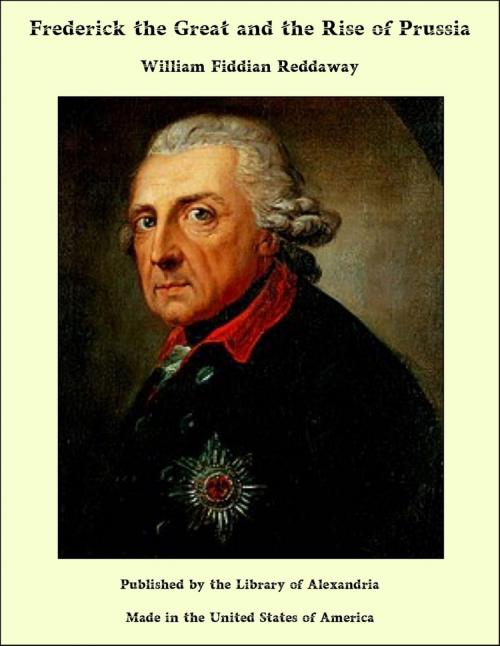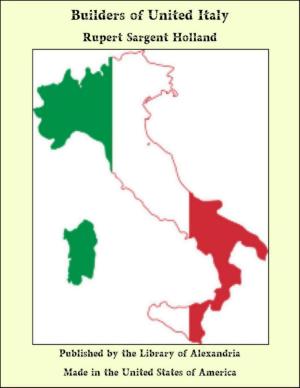Frederick the Great and the Rise of Prussia
Nonfiction, Religion & Spirituality, New Age, History, Fiction & Literature| Author: | William Fiddian Reddaway | ISBN: | 9781465618313 |
| Publisher: | Library of Alexandria | Publication: | March 8, 2015 |
| Imprint: | Language: | English |
| Author: | William Fiddian Reddaway |
| ISBN: | 9781465618313 |
| Publisher: | Library of Alexandria |
| Publication: | March 8, 2015 |
| Imprint: | |
| Language: | English |
THE first task of the student of Frederick’s life-story is to rid himself of the idea that the solitary King was either wholly original or wholly free. To seize Silesia, to quarter Poland, to rival Austria, to humble France, each was no doubt a feat which no Prussian ruler before him had dared to attempt. Yet in each of these, as will presently be shown, the hand of the living was at once nerved and guided by the dead. From his House Frederick inherited his might, to his House he turned for inspiration in the use of it, and to it he dedicated his conquests. He who would appreciate Frederick must first survey the road trodden for three centuries before him by the Hohenzollerns from whom he sprang. “Why should I serve the Hohenzollerns?” Bismarck is said to have exclaimed. “My family is as good as theirs.” It was the complaint of the yeoman against his fellow who has saved money and bought the lordship of the manor. The early history of the state now called Prussia is chiefly the record of a thrifty family—the Hohenzollerns. Since the year 1415, when the overlordship of the sandy tract lying between the middle Elbe and lower Oder and stretching across their banks was conferred upon him by the Emperor for cash down, Frederick of Hohenzollern and his descendants had remained lords of Brandenburg. From Nuremberg, where Frederick had been Burggrave, they had brought with them the vital energy and business ability of successful townsmen. So poor was their new estate that for many generations relaxation would have meant ruin. There was therefore no temptation to depart from that policy of adding field to field which is the natural law of the industrious countryman. Whether from native superiority or from greater need, the Hohenzollerns were usually a little wiser than their neighbours. With the aid of a family statute of 1473, which made primogeniture the rule of succession for Brandenburg, they avoided the consequences of that custom of equal inheritance which has been the bane of Germany. By careful watching of opportunities, by windfalls, by purchase, and by covenants for mutual succession on failure of heirs made with neighbours whose lines died out, the domain of the rulers of Brandenburg was in two centuries increased fourfold. When the Thirty Years’ War broke out and the modern history of Prussia began, the head of the Hohenzollern family, who had long since become one of the seven Electors of the Empire, held sway over an area almost as great as that of Ireland.
THE first task of the student of Frederick’s life-story is to rid himself of the idea that the solitary King was either wholly original or wholly free. To seize Silesia, to quarter Poland, to rival Austria, to humble France, each was no doubt a feat which no Prussian ruler before him had dared to attempt. Yet in each of these, as will presently be shown, the hand of the living was at once nerved and guided by the dead. From his House Frederick inherited his might, to his House he turned for inspiration in the use of it, and to it he dedicated his conquests. He who would appreciate Frederick must first survey the road trodden for three centuries before him by the Hohenzollerns from whom he sprang. “Why should I serve the Hohenzollerns?” Bismarck is said to have exclaimed. “My family is as good as theirs.” It was the complaint of the yeoman against his fellow who has saved money and bought the lordship of the manor. The early history of the state now called Prussia is chiefly the record of a thrifty family—the Hohenzollerns. Since the year 1415, when the overlordship of the sandy tract lying between the middle Elbe and lower Oder and stretching across their banks was conferred upon him by the Emperor for cash down, Frederick of Hohenzollern and his descendants had remained lords of Brandenburg. From Nuremberg, where Frederick had been Burggrave, they had brought with them the vital energy and business ability of successful townsmen. So poor was their new estate that for many generations relaxation would have meant ruin. There was therefore no temptation to depart from that policy of adding field to field which is the natural law of the industrious countryman. Whether from native superiority or from greater need, the Hohenzollerns were usually a little wiser than their neighbours. With the aid of a family statute of 1473, which made primogeniture the rule of succession for Brandenburg, they avoided the consequences of that custom of equal inheritance which has been the bane of Germany. By careful watching of opportunities, by windfalls, by purchase, and by covenants for mutual succession on failure of heirs made with neighbours whose lines died out, the domain of the rulers of Brandenburg was in two centuries increased fourfold. When the Thirty Years’ War broke out and the modern history of Prussia began, the head of the Hohenzollern family, who had long since become one of the seven Electors of the Empire, held sway over an area almost as great as that of Ireland.















